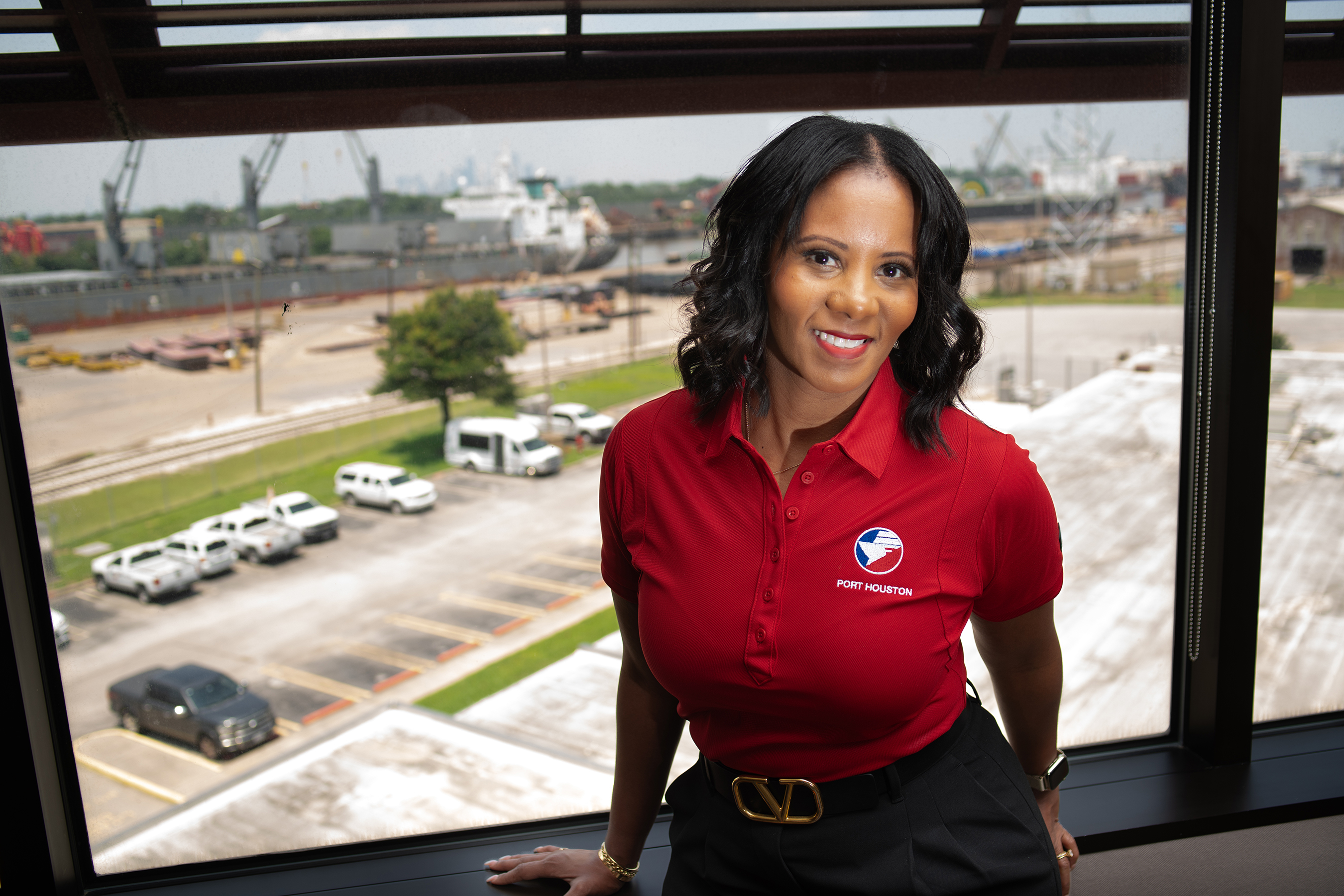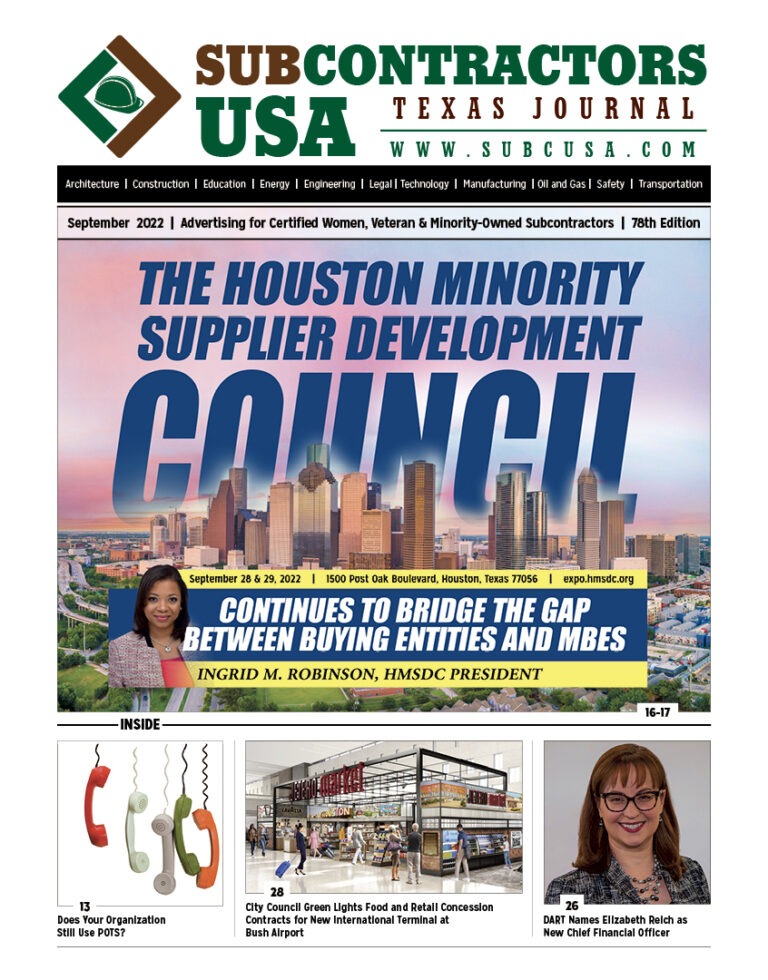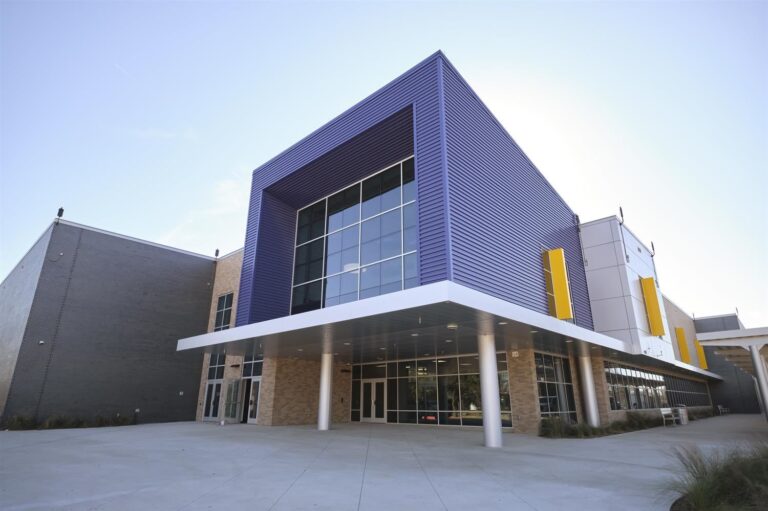
HOUSTON — As the Chief Business Equity Officer at Port Houston, Carlecia Wright’s role is multifaceted, encompassing the oversight of both internal Diversity, Equity, and Inclusion (DEI) initiatives and external business equity programs. Her primary focus is to work collaboratively with the executive leadership team at Port Houston to foster an inclusive work environment that ensures equitable opportunities for all employees.
Externally, Wright works closely with the port’s Business Equity Director, Dr. Sabeeta Bidasie-Singh, and the business equity team to support the growth and development of small, minority, and women-owned businesses through various initiatives. The port is dedicated to creating pathways for these enterprises to thrive, contributing to the economic vitality of the community.
In addition to these responsibilities, Wright plays a pivotal role in workforce development, ensuring that the port cultivates a skilled and diverse talent pool to meet its evolving needs. This involves strategic partnerships and initiatives aimed at building capacity, ensuring accountability and transparency, and fostering innovation. Port Houston has brought Wright on board to prepare the organization for its 2050 vision, taking their commitment to opportunity and equity to the next level. Her impact in the City of Houston and her consulting work with Harris County have demonstrated her ability to lead business equity and opportunity efforts effectively.
In an interview with Subcontractors USA – Texas, Wright discussed the vision for the port, the role that it plays in the economic growth of the Houston area, significant opportunities for subcontractors looking to do business with the port, and so much more.
What is your vision for the port? What are your overall goals?
My immediate vision is to serve as a thought partner, while also challenging us to be more assertive in seizing opportunities for growth and inclusion. This involves building a robust pipeline of diverse leaders internally, who are capable of guiding Port Houston through its next phase of development and ensuring our region’s continued prosperity. Port Houston has a proud legacy, established by our long-term leaders, of being the number one maritime port in the United States, handling the largest amount of foreign waterborne tonnage, and being a key economic driver for the region. In the short term, over the next three to five years, my goals are focused on expanding opportunities for small, minority, and women-owned businesses (S/MWBEs). This includes connecting these businesses to the vast opportunities within our operations, such as the new Executive Office Building project, and various other capital projects. These initiatives offer unique chances for partnership that must be maximized. One of our major undertakings is Project 11, a massive infrastructure project aimed at enhancing the Houston Ship Channel. While many aspects of this project are beyond the immediate capacity of our S/MWBEs, we are committed to ensuring that prime contractors strategically create opportunities for these businesses. Overall, my vision and goals for Port Houston are centered around fostering an inclusive supply chain, enhancing our support for S/MWBEs, and strengthening our engagement with the local community. By doing so, we aim to contribute significantly to regional development and prosperity, ensuring that Port Houston remains a beacon of opportunity and equity in the maritime industry.

Recently, the U.S. Army Corps of Engineers announced the Houston Ship Channel is ranked #1 as the busiest waterway in the nation, handling 67 million tons more than the #2 waterway and 95% more than any U.S. port. Port Houston advocates for and is a strategic leader for the channel. The Houston Ship Channel complex, which has more than 200 private and eight public facilities, is the nation’s largest port for waterborne tonnage and an essential economic engine for the Houston region, the state of Texas, and the U.S.
Business activity along the Houston Ship Channel supports the creation of nearly 1.5 million jobs in Texas and 3.37 million jobs nationwide, and economic activity totaling $439 billion in Texas and $906 billion in economic impact across the nation. Port Houston owns, manages, and operates the eight public facilities along the 52-mile waterway, which includes the area’s largest breakbulk facility and the two public container terminals, Bayport and Barbours Cut. Together, these two container terminals handle more than 70% of all container cargo through the Gulf.
What role does Port Houston play in the economic growth of the Houston area and the broader region?
Port Houston plays a vital role in the economic growth of Houston and the broader region. The latest economic survey released just last year revealed that in 2022, marine cargo activity at the 200 private terminals along the Houston Ship Channel, along with the contribution of our eight public terminals, helped support a total of $906 billion of U.S. economic value, of which $439 billion was in the state of Texas.
How has Port Houston grown over the past few years? Can you provide some examples of significant milestones?
The Houston Ship Channel and Port Houston have continued – since its inception in 1914 – more than 100 years ago through visionary leadership and continuous investments towards future growth. One of the key milestones of recent is the billion-dollar Houston Ship Channel Expansion – Project 11. As the local sponsor of this crucial federal waterway, Port Houston has partnered with the U.S. Army Corps of Engineers to expand the channel. However, the expansion of the Houston Ship Channel is not just a project, it’s a crucial step towards ensuring national energy security, thriving U.S. exports, local manufacturing growth and expanding job opportunities. When complete, the Houston Ship Channel expansion – Project 11 – will widen the channel by 170 feet along its Galveston Bay reach, from 530 feet to 700 feet. It’s named Project 11 to highlight that it’s the 11th major expansion of the Houston Ship Channel in its 110-year history.
In what areas does the port see the most significant opportunities for subcontractors looking to do business?
Subcontractors have significant opportunities in Project 11 Channel infrastructure, technology services, operations and maintenance projects. Ongoing and future projects, such as expanding and modernizing port facilities, create a high demand for specialized construction and engineering services. Additionally, our push towards digitalization and green initiatives presents ample opportunities for tech and environmental sectors.
How does the port provide support for subcontractors’ growth and development?
Port Houston supports subcontractors through various capacity-building programs designed to enhance their skills and capabilities. Our Opportunity U program, for example, offers comprehensive training and development workshops tailored to meet the needs of our subcontractors. We are committed to maintaining transparent and accessible bidding processes, ensuring fair opportunities for all subcontractors. In addition, we host networking events and forums that facilitate connections between subcontractors and potential internal business partners. In 2023, we launched our annual Inclusive Procurement Forum, which brings together prime contractors, internal business partners, and small, minority, and women-owned business enterprises. Due to the high demand from our S/MWBEs, this year’s event, scheduled for June 20, will be hosted off-site to accommodate more participants.
How does Port Houston plan to accommodate future growth in terms of infrastructure and capacity? Where do you see your biggest growth opportunities in the next five years?
Port Houston is continuously improving and expanding our eight public facilities by strategically investing in capital projects in order to continue to be an efficient gateway to move goods and products. In fact, we have a planned $1.7 billion in landside infrastructure investments planned over the next five years. These enhancements, which include added wharves at Bayport Container Terminal, new cranes, and redevelopment of breakbulk and general cargo docks, will help prepare us for future cargo needs. In addition, the $1 billion Houston Ship Channel Expansion – Project 11, which is currently underway, helps ready this vital waterway for the future needs of vessels and businesses. As a result of these investments coupled with our strong partnership with labor, our terminals are well-prepared for cargo growth, in particular imports of containerized consumer goods, exports of Texas-grown agriculture products or resins, and the movement of steel products, which are vital to Houston’s thriving petrochemical complex.
What are some common issues or roadblocks subcontractors, companies, or people encounter when trying to do business with the port?
A common issue that subcontractors, companies, and individuals encounter when trying to do business with the port involves navigating complex regulatory requirements. This can often be a daunting task, particularly for smaller businesses that may not have the same resources as larger firms. Another significant roadblock is accessing timely and accurate information about available opportunities and specific requirements. Smaller businesses often face resource constraints, both financial and human, which can impact their ability to compete effectively and seize opportunities. At Port Houston, we are committed to addressing these challenges through a range of supportive measures. We provide comprehensive support and resources to help businesses overcome these obstacles.
We also understand the importance of mentorship and guidance. Our participation in the Interagency Mentor Protégé Program (IMPP) pairs new or small businesses with experienced mentors who can offer valuable advice and support.

How does Port Houston engage with the local community?
Engaging with the local community is a core part of Port Houston’s mission. We host a variety of community outreach programs, including events and forums where we connect with residents and local businesses. Our educational initiatives, in partnership with schools and educational institutions, provide learning opportunities and raise awareness about the maritime industry. Additionally, we encourage volunteerism among our employees and support local charitable organizations, demonstrating our commitment to giving back to the community.
For more information on business equity and ways to work with Port Houston, visit https://porthouston.com/business/vendor-diversity/business-equity/.









